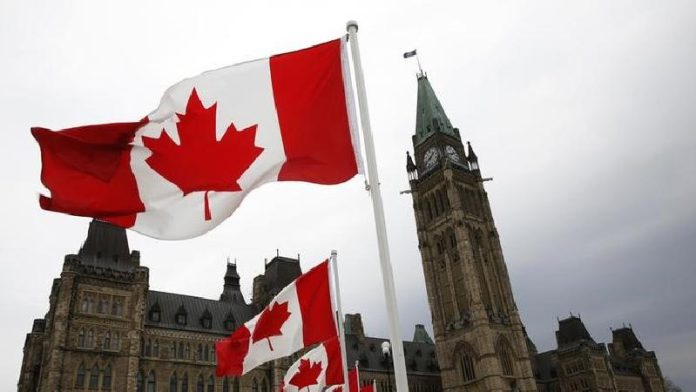U.S. intelligence has provided Canada with intelligence on the killing of Khalistani terrorist Hardeep Singh Nijjar, according to The New York Times.
US intelligence provided Canadian authorities with data after the killing of Sikh separatist Hardeep Singh Nijjar, but communications intercepted by Ottawa were more definitive and allowed them to accuse India of masterminding the plot, The New York Times reported, citing sources.
The top US diplomat in Canada has confirmed the existence of “shared intelligence between the Five Eyes partners” that formed the basis for Canadian Prime Minister Justin Trudeau’s insulting accusation against India for killing a Khalistani extremist in Canada. Immediately afterwards, the press reported on the intelligence received.
The Government of India called the allegations “absurd” and “motivated”. As a result, India expelled a senior Canadian diplomat in retaliation for Ottawa’s expulsion of an Indian official in the case. India has labelled Canada as a safe haven for terrorists.
Nijjar, the ringleader of banned group Khalistan Tiger Force (KTF), was killed on 18 June in Surrey, British Columbia. India put Nijjar on the terrorist list in 2020.
The United States has urged India to cooperate with Canada in its investigations. The NYT reported, quoting unnamed allied officials as saying:
“In the aftermath of the killing, US intelligence agencies offered their Canadian counterparts context that helped Canada conclude that India had been involved.”
David Cohen, the US ambassador to Canada, told CTV News that “the joint intelligence of the Five Eyes partners informed Trudeau of the possible involvement of Indian agents in the murder of a Canadian citizen in June.” He said:
“I will say this was a matter of shared intelligence information. There was a lot of communication between Canada and the United States about this, and I think that’s as far as I’m comfortable going.”
After Nijjar’s death, U.S. officials told their Canadian counterparts that Washington had no prior knowledge of the plot, and if it had, two allied officials said it would have informed Ottawa immediately under the intelligence community’s “duty to warn” doctrine, the newspaper reported.
The officials, who spoke on condition of anonymity, noted that Canadian officials gave Nijjar a general warning but did not directly tell him that he was the target of an Indian government plot, the report said. Cohen told CTV that said that the US takes very seriously these allegations:
“And, you know, if they prove to be true, it is a potentially very serious breach of the rules-based international order in which we like to function.”
The newspaper notes that U.S. officials have been largely careful not to provoke diplomatic pushback from India, although Secretary of State Antony Blinken has urged India to co-operate with the Canadian investigation.
The disclosure of US intelligence involvement could drag the US into a diplomatic tussle between Canada and India at a time when the states are keen to develop New Delhi as a closer partner.
Antony Blinken notes that the US expresses “deep concern” about the allegations made by Canadian Prime Minister Trudeau against India. He notes that Washington is “coordinating closely” with Ottawa on the issue and wants to see “accountability” in the case.
Blinken said at a press conference in New York on Friday that the U.S. has been in direct dialogue with the Indian government on the issue and the most productive thing would be to conclude this investigation.
Trudeau issued a statement Friday saying Canada shared evidence of Nijjar’s murder with India “many weeks ago” and wants New Delhi to work constructively with Ottawa to establish the facts in a “very serious matter.” When asked about Canada sharing any information in the case with India, the Ministry of External Affairs (MEA) in New Delhi said:
“No specific information has been shared by Canada on this case, either then or before or after. We have, you know, as we have said, or I think we have made very clear, we are willing to look at any specific information.”
